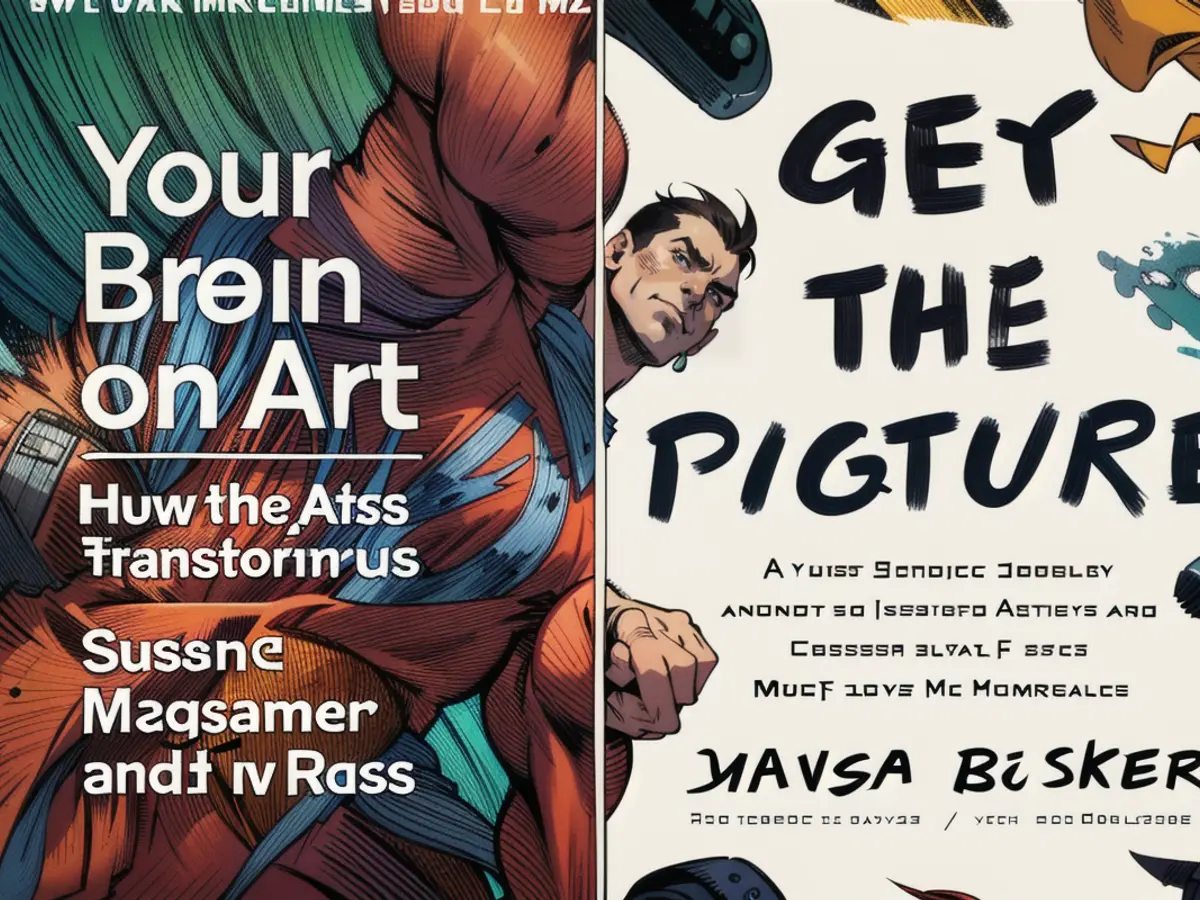Regularly performing this activity can prolong your life by up to 10 years; no need for a gym membership.
Many individuals don't choose to pick up a coloring book, paintbrush, poetry collection, or museum membership for health benefits, but perhaps it's time to reconsider.
Research reveals that art experiences, whether as a creator or viewer, alter our biology by rewiring our brains and triggering the release of neurochemicals, hormones and endorphins.
Medical professionals have witnessed growing evidence that different art practices can dramatically improve both physical and mental health on a measurable scale. As a result, more healthcare professionals are prescribing arts engagement to treat various illnesses, including obesity, heart disease, chronic pain, dementia, Parkinson's disease, loneliness, and depression.
The advantages of various art practices for healing, well-being, and even increasing longevity are considerable, comparable to the benefits of exercise, diet, and sleep, according to Susan Magsamen in her bestseller, "Your Brain on Art: How the Arts Transform Us."
Perhaps this is why the arts have persisted in human experience throughout history.
Bianca Bosker, in her new book, "Get the Picture: A Mind-Bending Journey among the Inspired Artists and Obsessive Art Fiends Who Taught Me How to See," admits she once believed art to be a luxury and not a necessity. However, she encountered many scientists who consider art a basic human need.
"Art is an ancient artifact (humans created paint long before the wheel), a primal means of communication (we drew before we could write), and a primal urge," she wrote.
Magsamen and Bosker both urge everyone to make art a daily practice based on research and personal experiences, as they view it as anything but a luxury. Here's why they believe this:

This interview has been edited and condensed for clarity
CNN: You both assert that art is essential to human existence. How do you convince skeptics?
Susan Magsamen: Human beings are physiologically wired for art. Our senses expose us to art, which fosters connections between our brain's 86 billion neurons and affects our biological wiring.
Art, which engages multiple neurological and physiological systems at once, has a unique evolutionary characteristic – it engages the entire brain, body, and spirit. Every time you're moved by your favorite song, remember that the artist's decisions change you at a cellular level.
Bianca Bosker: Many experts believe art is an innate human impulse and biologically inherent tendency that has assisted our species in surviving. Although we primarily think of art as intellectual, it's primarily a physical experience. Music, with its vibrating bass notes, illustrates this, but visual art is also physical.
For the past century, our society has focused on art's ideas, but engaging with art in person, like two bodies interacting, is vital. Research reveals that factors such as an artwork's size or how one moves around it can alter how one perceivess art. Being in the presence of an artwork, for example, a huge Mark Rothko painting, is unlike looking at a tiny image of it on Instagram.
There are fascinating anecdotes about how artwork can affect people on a physical level. "Stendhal syndrome" refers to when individuals become disoriented, dizzy, exhausted, or experience fainting spells or tears in front of artworks. The woman in a Houston museum who disrobed in front of a Cy Twombly painting demonstrates this. Art has the capacity to move us in unimaginable ways.

Magsamen: It's important to acknowledge that not all art is positive. However, understanding the types of sensory experiences you bring into your life is crucial because of their potential to impact your mood and body.
CNN: Bianca, you discuss finding merit in some art experiences that may be disturbing or uncomfortable. What are the benefits of challenging work?
Bosker: Art isn't always pleasant, and this may be part of its appeal. Scientists have pondered why humans continue to engage with art even when it upsets their sense of beauty. One theory is that churning minds seek art that upsets their expectations and confounds them because it's engaging and gives surprising experiences their brains crave.
Some theorists suppose art aids us in tackling the streamlining traits of our brain, which simplifies reality by compressing it. However, this compression comes with drawbacks. Our brain's propensity to oversimplify might be overcome via art, offering us a chance to combat it.
Celebrating exceptional women ahead of International Women's Day Published 1 week ago
From self-made tech moguls to environmental activists to Olympic fencers, these inspiring stories of women show that gender is no barrier to making history.

Read also:
Engaging with art, whether as a creator or observer, can trigger the release of neurochemicals, hormones, and endorphins that alter our biology and rewire our brains, as suggested by medical research. Various art practices, such as museum visits or creating poetry, have been shown to significantly improve physical and mental health.
Art experiences can have a comparable impact on health and well-being to exercise, diet, and sleep, according to research and Susan Magsamen's book, "Your Brain on Art: How the Arts Transform Us."








